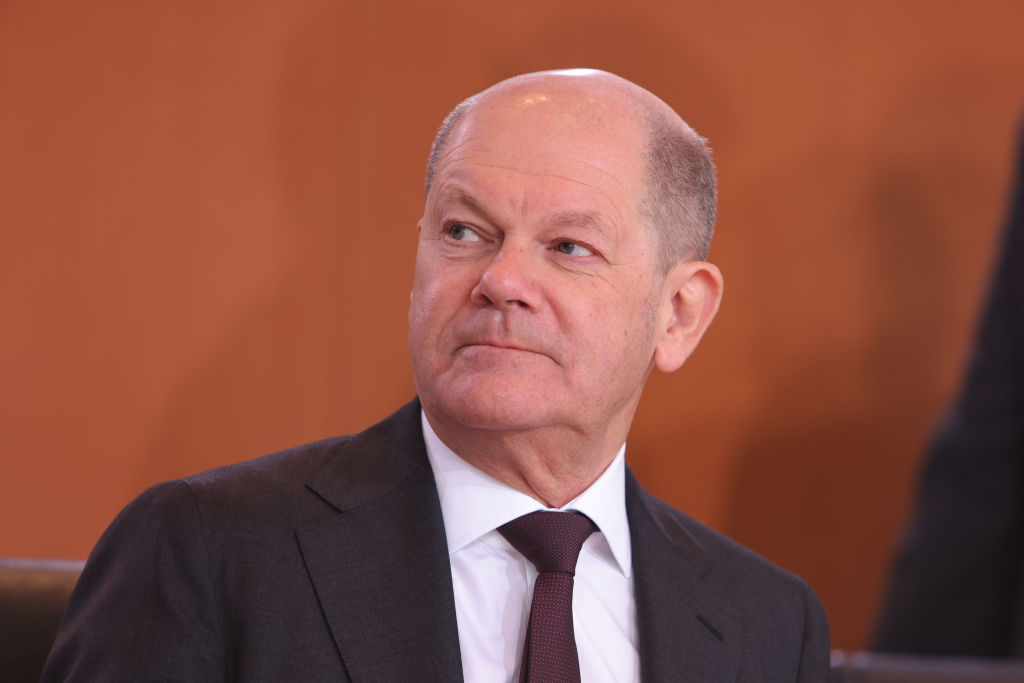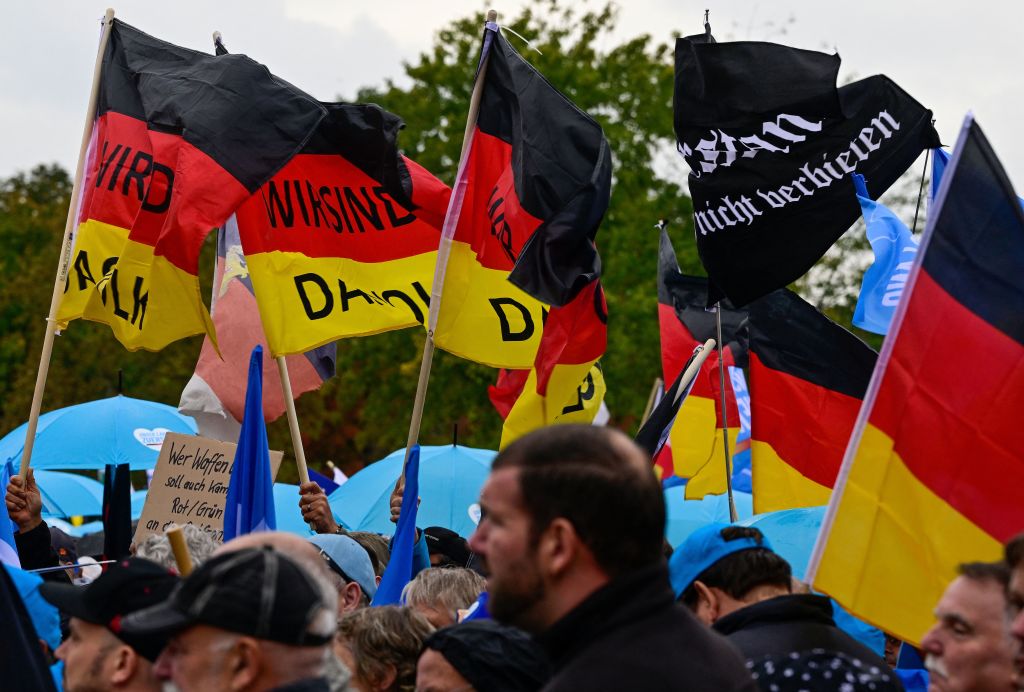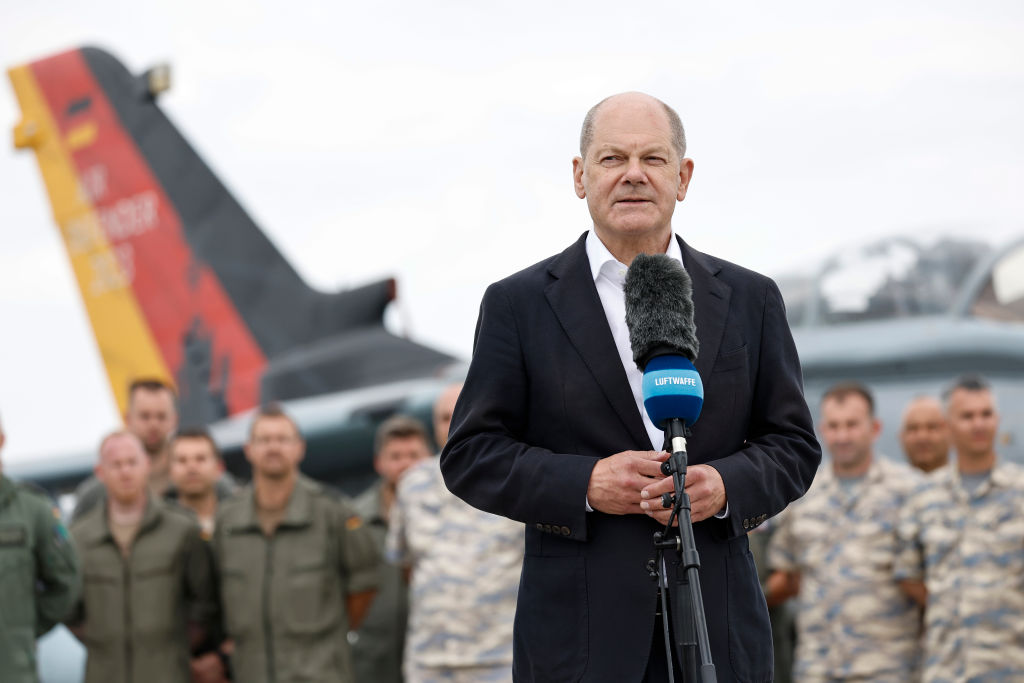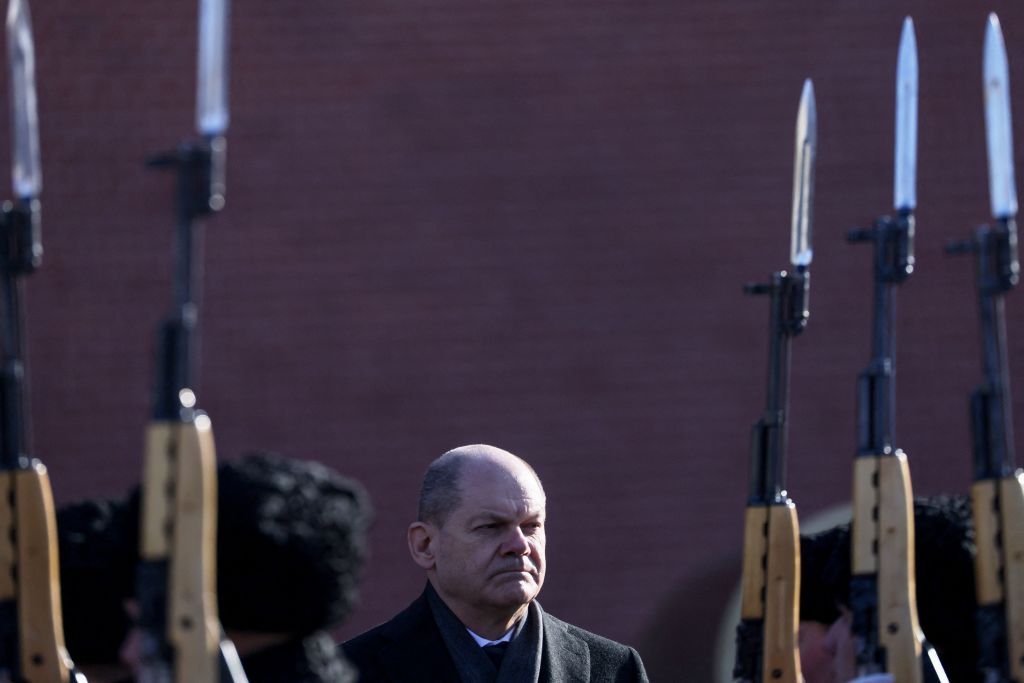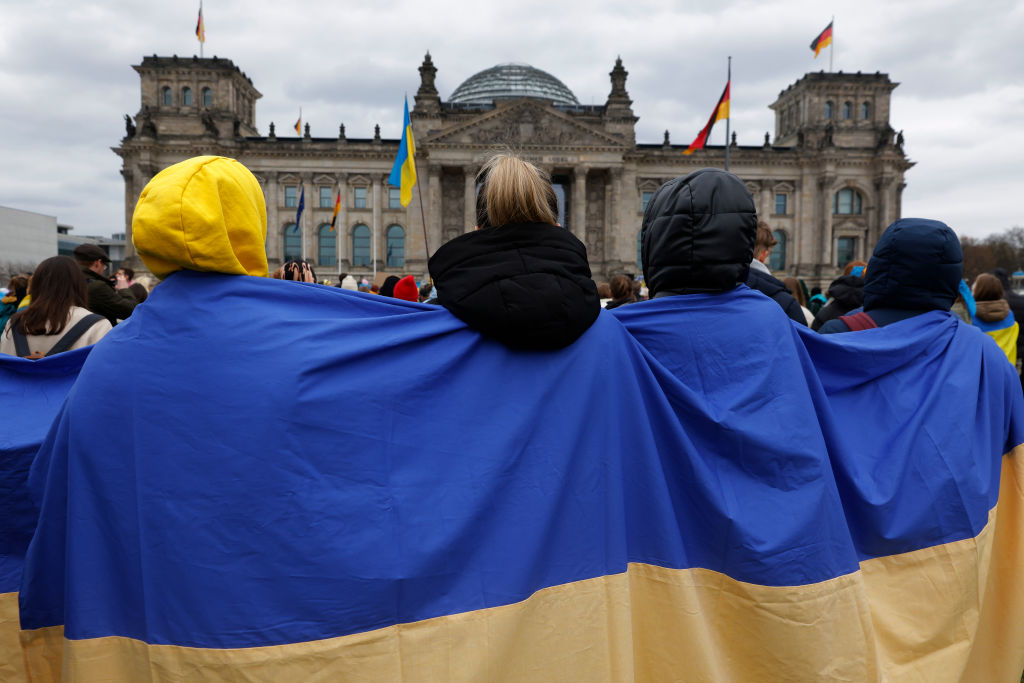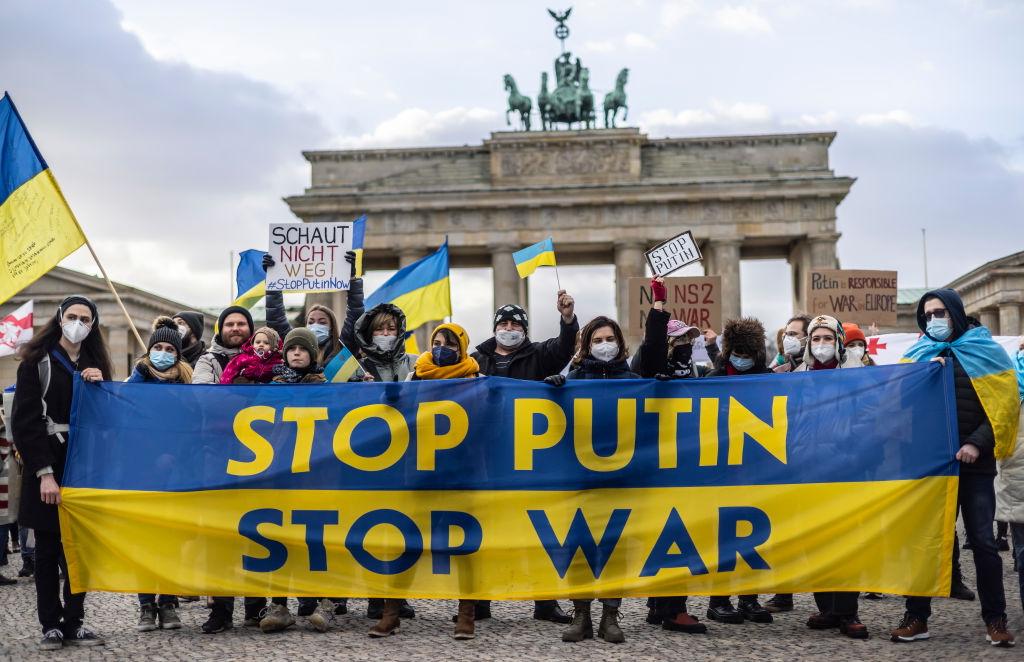
Germany is emerging from dreamland, and the Green Party, a most unlikely avatar of realism, is leading the way. Forty years ago, the Greens arose out of nowhere with a hard-core ideology: no American nuclear weapons, no nuclear energy, no use of force. Call it ‘ecopacifism’ or ‘peace über alles’.
Back in the 1980s, they mobilised millions against the deployment of medium-range missiles by the United States and blocked civilian nuclear sites. But where you stand depends on where you sit. Today, the Greens are a pillar of Germany’s three-party coalition government. Their co-leaders, Annalena Baerbock and Robert Habeck, are, respectively, foreign minister and economics minister.
Like the White Queen in Alice in Wonderland, the Greens once believed in many impossible things before breakfast. So did most Germans. The country would get plentiful cheap gas from Russia, safely switch off its last three nuclear power plants by the end of 2022, and replace oil and coal with sun and wind.
Germany could also let its army rot, shrinking it from 500,000 to 180,000. The former Reich would act as a ‘power of peace’, beholden to its culture of (military) self-denial. Trade and investment would tame Russia and other aggressors. Made in Germany would prevail.
Then Russian President Vladimir Putin pounced, inflicting unimaginable cruelty on Ukraine. The traditional ruling parties—the Social Democrats and the Christian Democrats—were caught flat-footed. Send tanks and long-range artillery? We must not rile the bear who was then good for 55% of German gas consumption—the highest share in the European Union. Rescind the Energiewende, the green-energy transition imposed by Germany’s four-term chancellor, Angela Merkel? No way.
But the Green leadership has undergone a mind-boggling reversal, segueing from pacifism to bellicosity, from anti-Americanism to anti-Putinism, with dizzying speed. Habeck set the new tone: ‘Ideology should not stand in the way of extending the life of nuclear power plants.’ After visiting the killing fields in Ukraine, Baerbock spoke for all: ‘We could be these victims.’
As early as 2015, Baerbock had warned that Putin could wield gas as a weapon. ‘We have woken up in a different world’, she said in the wake of the invasion. ‘We can’t duck, we have to assume responsibility.’
Returning from the horrors of the battlefield, a young Green Bundestag deputy, Robin Wagener, advocated delivering modern heavy weapons, plus air defences, armoured vehicles and intelligence technology. Even an old-timer, Daniel Cohn-Bendit, 77, has made peace with war: ‘I am pained by the reality, not by having to face it.’ Greens like him have faced it, which makes them ‘at this point the most rational party in Germany’.
How to crack the riddle of a party that has long clung to ecopacifism as a secular religion? Why would Baerbock accuse Putin of ‘having broken all agreements Europe has crafted to assure the peace’? Why would the Greens, who have worshipped so long at the altar of pacifism, turn against Russia?
One reason is what Germans call ‘the normativity of the facts’. Or, as John Maynard Keynes may have put it, ‘When the facts change, I change my mind.’
The facts are dire. Putin is trying to restore the old Soviet empire, threatening Europe’s unprecedented 77 years of peace. After Ukraine, will Moldova and the Baltics be next? Having been routinely victimised by Russia throughout history, Poles have every right to fear Putin’s armies on their eastern border, which bodes ill for Poland’s western neighbour, Germany. So, strategic logic demands rearmament and deterrence, plus, finally, heavy weapons to Ukraine.
But, despite realpolitik, the old guard on the left still cleaves to the hoary verities of German Ostpolitik. Cooperate, don’t confront. Peace beats power. Let’s give Putin an off-ramp, let him keep his winnings so that he won’t lose face and escalate. Weapons for Ukraine will only prolong the slaughter, as if Ukraine were bombing Russian civilians, schools and hospitals. In stark contrast, Baerbock proclaims: ‘If you don’t feel angst [about this war of aggression], you are either dishonest or obtuse.’
A second explanation is generational. Today’s Green leaders came of age in a world where their now grizzled or departed forebears used to hold both political and cultural power. Having inherited a country tainted by the greatest crimes against humanity, this post-war cohort was desperate to restore moral worth to the Fatherland.
That meant a 180-degree turn away from Der Führer. Peace, not panzers; community, not conquest; goodness, not greed. Germany presented itself as a moral superpower, which had a practical payoff. When badgered by the US to contribute troops to various military theatres, German leaders would invoke their country’s unspeakable past: Not us! At best, they would dispatch symbolic contingents while the US and the United Kingdom shouldered the heaviest load.
The new generation of Greens and their youngish voters do not labour under the moral burden of their elders. They need not shelter behind the past and preach the moral superiority of pacifism to prove Germany’s redemption. By the time they came of age, the country had long since regained moral worth. A solid liberal democracy, safely embedded in NATO and the EU, Germany no longer needed to sustain its posture as a reformed outlaw.
Putin helped, of course. Anton Hofreiter, a former chairman of the Greens, fumed that Putin is fighting ‘an imperial, colonial war of aggression’. Hofreiter is 52. A generation ago, the Greens and the left in general would have cowered behind the crimes of Nazism. Today, only the far right and left stick up for Putin. Together, they score 17% in the latest poll; the Greens command a solid 22%.
Chalk it up not just to Putin’s imperialism. The new Greens need not preach the convenient moralism of the past; they are the beneficiaries of a redemption earned by two preceding generations. As this cohort consolidates power, the country as a whole may be coming of age. Today, some 70% of Germans even want to keep the nuclear power plants running.




